POLICY ARGUMENT
POLICY ARGUMENT
Daniel Engber writes a regular science column for Slate.com and has published articles in Popular Mechanics, Popular Science, Salon.com, and the Chronicle of Higher Education. A deliberately quirky writer, he has drawn on his graduate education in neuroscience to argue for distracting free-
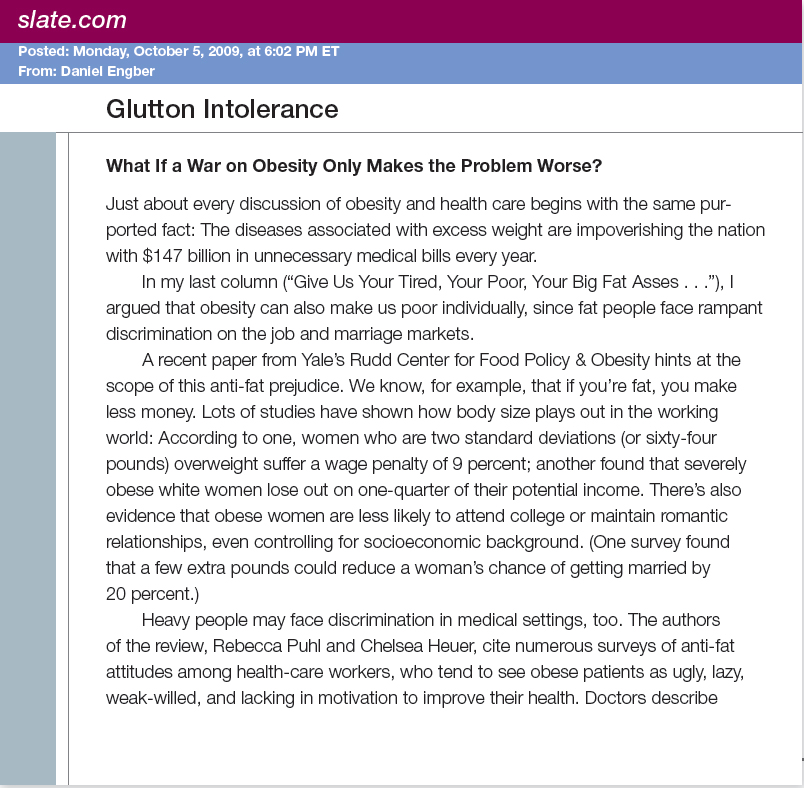
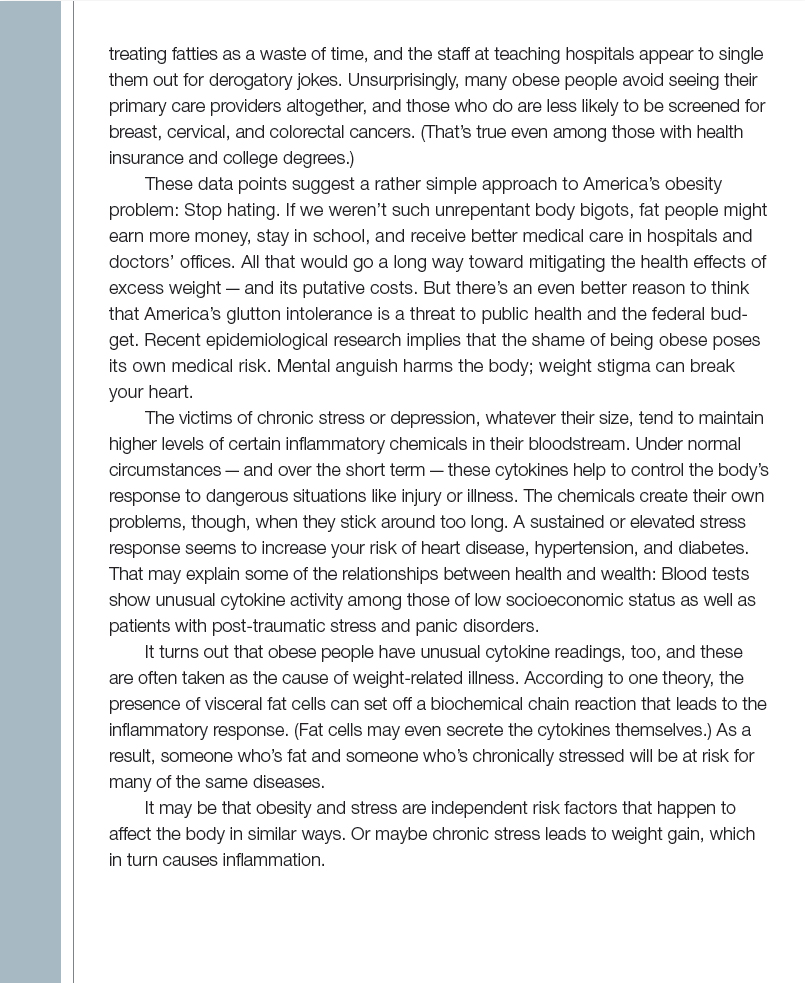
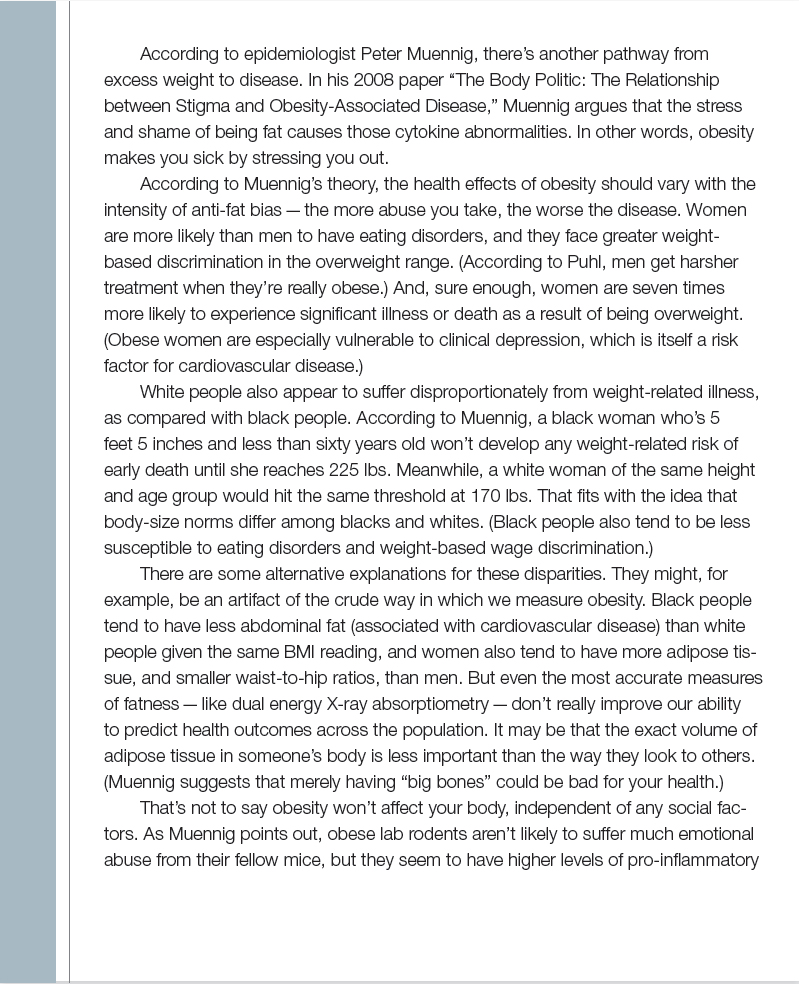
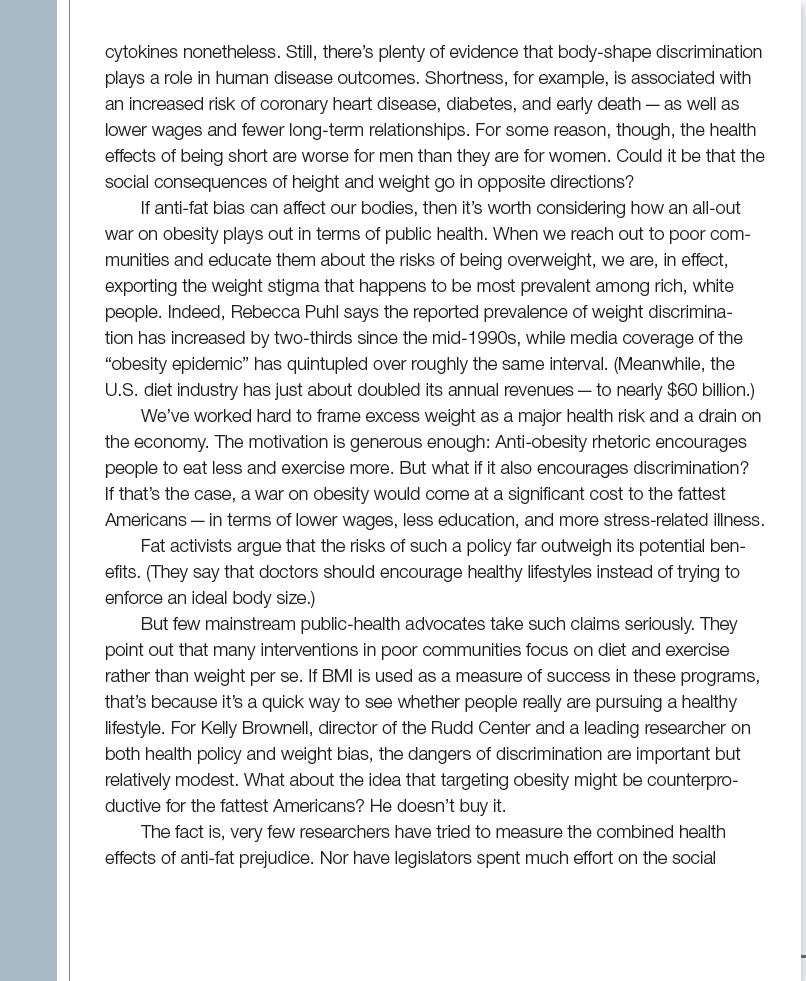
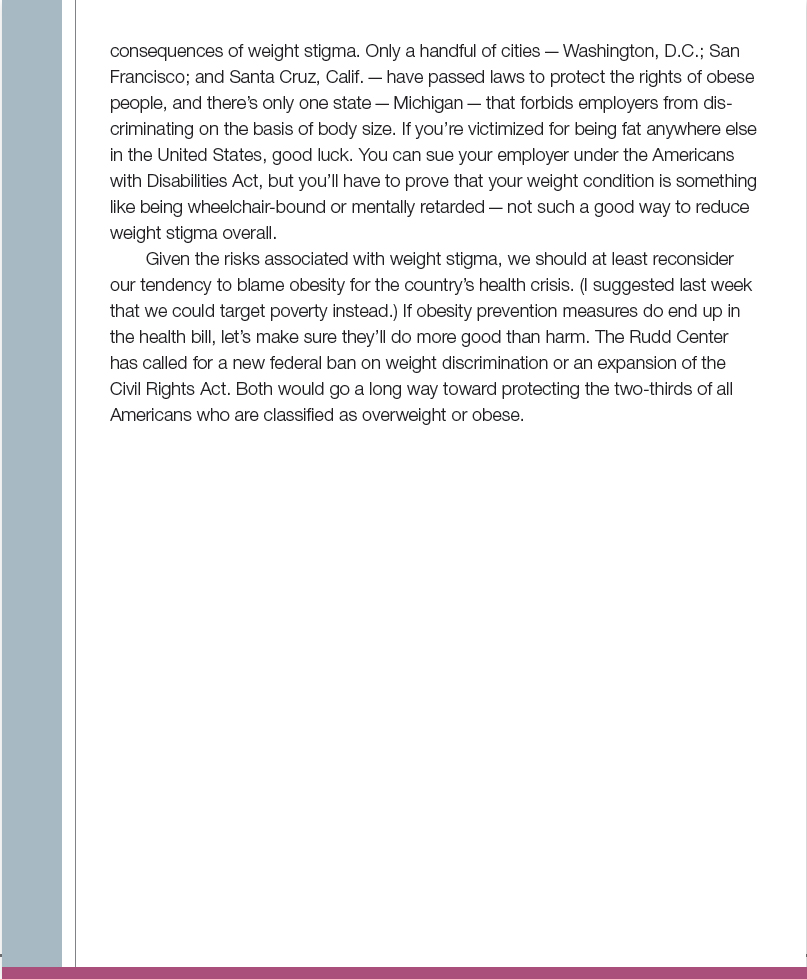
Reading the Genre
Question
1. Engber opens his argument with an overview of recent scientific research on the costs of obesity and then startles readers with his thesis — “Stop hating” — in the fifth paragraph. Reread the article and locate other instances when Engber switches between academic and conversational style. How does he want his audience to respond when he makes these shifts in style? (See Chapter 32, “High, Middle, and Low Style”.)
Question
2. Find Engber’s restatement of his thesis in the last paragraph. How does the thesis change between Engber’s introduction and his conclusion? (See Chapter 24, “Thesis”.)
Question
3. Engber tests the logic of several theories, offers a range of possible causes for obesity, and considers the effects of being obese on individuals and on society. What do these causal analyses contribute to his argument? (See Chapter 5, “Causal Analyses”.)
Question
4. Engber’s article is thoroughly researched. Choose a few of the sources he names in his text, find them online or through your library’s databases, and create a list of works cited in MLA style or a references list in APA style. (See Chapter 46, “MLA Documentation and Format”, and Chapter 47, “APA Documentation and Format”.)
Question
5. WRITING: Visit the Yale Rudd Center on Food Policy’s “Hot Topics” Web page (www.yaleruddcenter.org/